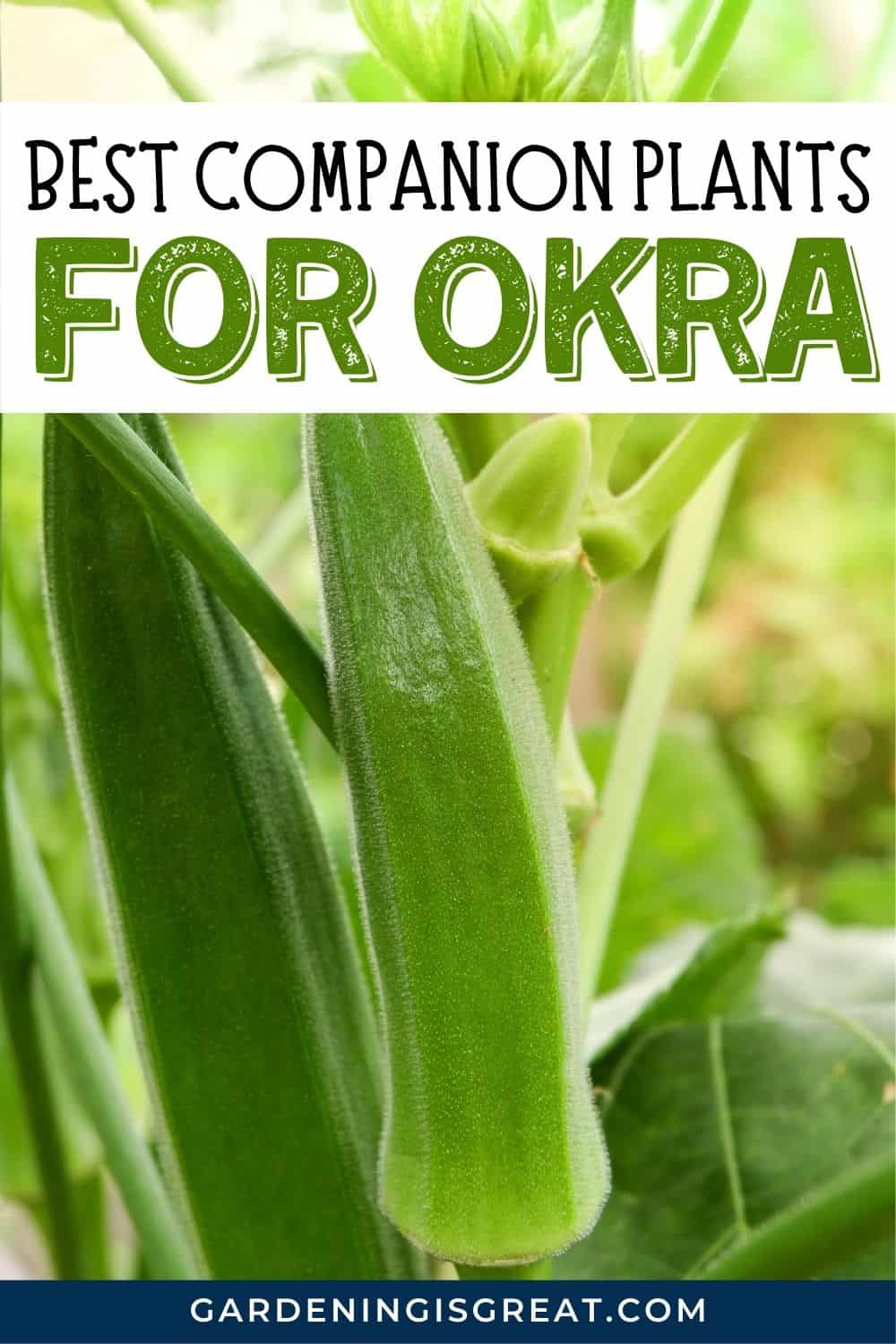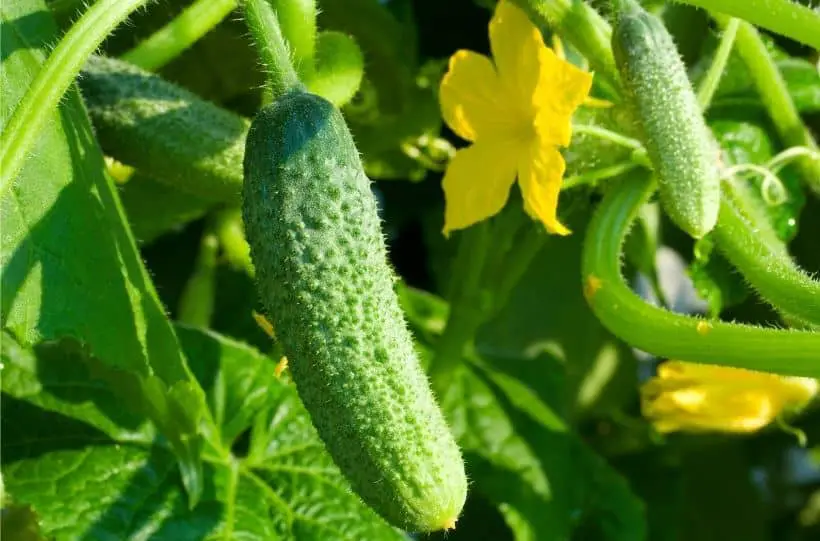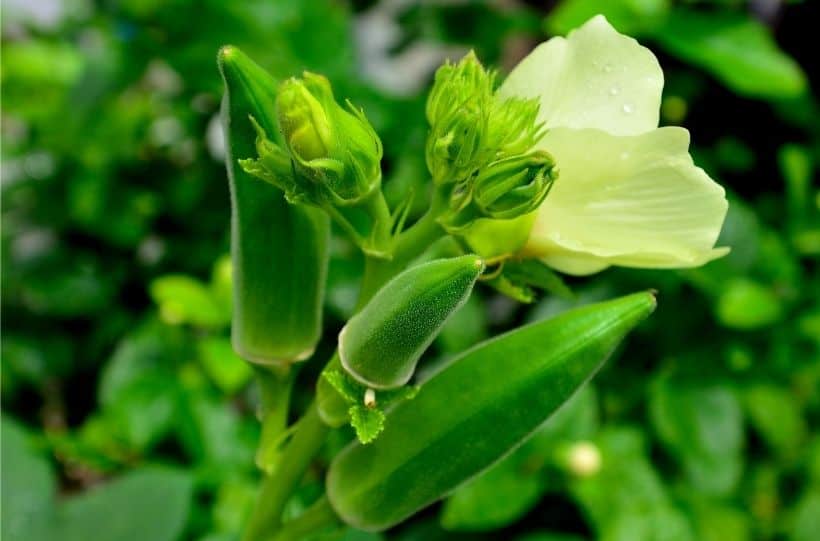The Best Companion Plants For Okra
Okra is a great vegetable for planting in your companion garden because it gets along with most other plants and can even be used to help other plants in your garden grow.
Companion planting okra helps to protect your plants from pests and creates an environment that helps to keep your plants healthy. Companion planting can help prevent blight and disease that can destroy a crop.
Companion planting is a great way to help attract pollinators and beneficial insects to protect your okra from aphids. Okra also grows tall, making it a great companion plant for things like kale or lettuce that need shade to extend its growing season further into the summer.

Why Should You Companion Plant Okra?
Okra makes a great windbreaker to plant to place along the west side of your garden beds to help reduce strain from the wind on more delicate plants like tomatoes that tend to struggle with heavy winds.
The much deeper rooted plant with a strong sturdy stem makes okra perfect for taking the bite of the wind during the growing season.
Tall okra plants make a great shade plant helping to protect more delicate plants that do better in a partial shade over the hot summer. Adding your okra plants on the west or south can help take advantage of this plant for shade.
The Best Companion Plants for Okra
Peppers
Peppers are water-loving plants that help to repel cabbage worms that often plague okra plants allowing your plants to thrive without being attracted by this common garden pest.
If you are interested in protecting your okra plants, peppers make one the best companion plants as they eventually become similar in size and will not shade each other out.
Cucumbers
Cucumbers and okra are both water-loving plants that tend to thrive together in the garden.

Cucumbers need full sun and plenty of room so there should be plenty of space between the plants but growing cucumbers up a trellis near your okra is a great way to make this pair work.
Melons
Melons like cucumbers love water and can thrive near okra. Remember that these two plants are very similar in growth and can cross-pollinate, so choose either melons or cucumbers for a single bed, not both.
Kale
Kale can thrive in the shade of okra plants, helping to keep them cool in the summer sun to help extend kale’s growing season. These plants won’t compete for nutrition but the kale can act as a wonderful living mulch around your okra.
Dill
Dill is a great companion plant for okra. The large flowers help to attract beneficial insects that will help protect your okra. The strong scent of dill also helps to repel problem insects like aphids that love to take over okra plants causing serious damage.
Chives
Chives are a wonderful flowering herb that tends to grow well with okra while helping to attract bees and butterflies to your garden beds, where they will help to pollinate your okra and extend your plant’s production for the season.
Sage
Sage has a strong scent that helps to repel cabbage moths that attack okra (and other companion plants you may be growing with your okra, like lettuce and kale). If you allow your sage to flower, it will also help to attract pollinators and increase the yield.
What You Should NOT Plant With Okra
Some vining plants tend to attract nematodes that decimate your okra crop by damaging the roots of young plants. For this reason, you should avoid growing sweet potatoes or squash near your okra and make sure that there is at least a two-year rotation between garden beds that have been used to grow these before planting your okra.
Avoid planting okra with anything that needs full sun to survive if you are going to plant the okra on the south side. This is important because of how tall and thick okra plants get; your okra will end up shading the other plants.

Besides plants that can not handle shade and those that attract nematodes, okra doesn’t have anything else that it can not get along well with, making it the perfect addition to the north side of nearly any bed in your garden if you are in need of a versatile filler plant.
And for more information on companion planting to help you plan your garden, check out these guides next:
